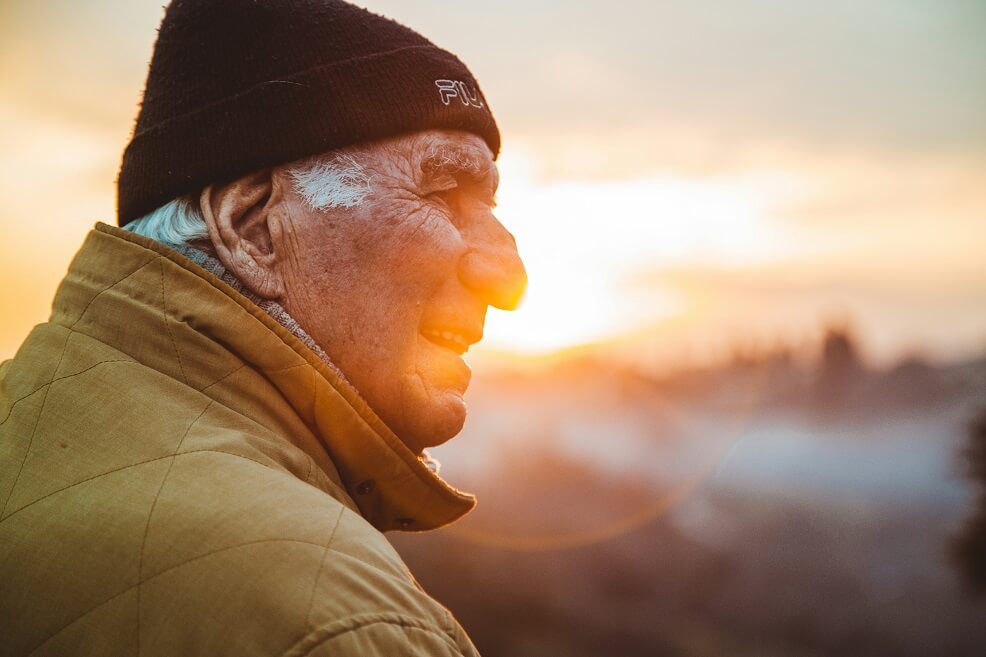
Sarita Yaganti: “We need to all be open enough to talk about cancer and overcome some of our own misconceptions, so we can support each other better.”
This month one of our Trustees, Sarita Yaganti, talks about the enormous psychological and physical impact cancer has on patients and the world around them. She is passionate about the need to provide support at every stage of the cancer journey, from initial diagnosis and treatment through to life beyond cancer.
Sarita became a trustee of Cancer Support UK in 2019. She has nearly 20 years’ experience of improving cancer services across London and a wide-ranging knowledge of patient pathways and treatment modalities from early diagnosis to palliative care and end of life.
Sarita is currently leading on a cancer programme across North East London, which is designed to improve the quality of life of cancer patients and their carers, by empowering and supporting them, in their health and wellbeing choices.
What led you to become a Trustee of Cancer Support UK?
I’m a huge advocate for the advancement of cancer treatment, but it’s not just about the medical treatment, it’s about the mind, body and the soul of someone going through cancer, as well as their families and wider network. What I am most proud of about Cancer Support UK, is that its services connect people. On an emotional level, the impact that cancer has on a person is enormous, and by providing the support that people desperately need, Cancer Support UK is filling a much needed gap. The person-centred approach of Cancer Coach’s six-week programme and the Cancer Kits that we provide, adds to people’s wellbeing and quality of life.
Tell us about your experiences and your inspirations within cancer services?
My career with the NHS started in early 2000. Prior to this, I was working in publishing for a few years and I think I had an early-career crisis. I had a craving to do something for the wider good, as cheesy as that sounds, and I was conscious that people around me were affected by cancer. I spotted a role in a project that was trying to improve the psychological support services across West London for palliative cancer care. The project looked at the specific needs of patients, such a where people wanted to die and the specialist support that was needed to provide a dignified death. From that first foot in the door, I learnt to understand not just the needs of patients, but also those around them. It hit me what an impact cancer has across communities, at all levels. It is our responsibility to ensure that we have services, which support people and our communities. Making that career change is the best thing that I have ever done.
I am inspired most by the dedication I see in cancer care, such as the nurses on the wards, who work tirelessly to ensure that patients receive the best possible care. They are at the coalface and are the ones who see the raw emotions and how cancer affects different people. The nurses and cancer support staff deserve more credit.
What are the most significant and successful changes you have seen in the treatment of cancer patients.
A more holistic view is being considered as part of cancer treatment – it’s not just about the type of surgery or other treatment, it’s also about optimising treatment: before, during and after treatment. Within the NHS there is greater emphasis on a more personalised approach to cancer treatment and cancer management. The improvement is that it’s not just focused on hospital care, you can now have care in the community and follow ups with your GP, so you don’t have to keep going back to hospital. This makes treatment and follow-up more efficient. It’s also beneficial for those back at work who may find it difficult to consistently take time off work to attend appointments. Corporations and workplaces need to make it easier for employees to attend their follow up appointments. In an ideal world, patients with long term conditions such as cancer, should be allowed to attend appointments without having to use their annual leave, lose money or the fear of losing their jobs.
Successful initiatives include pre-habilitation before a surgery or treatment. We are working to ensure that patients have some kind of physical intervention, so that their outcomes will be better post treatment. We are looking at getting them fit for their treatment. Prehab is about diet, psychological care and nutrition, as well as physical exercise. In North East London, we are working to ensure pre-habilitation services are available to patients, in order to optimise their treatment, their recovery and their life after cancer.
After diagnosis patients will be offered a series of holistic appointments (called Holistic Needs Assessments), which is an opportunity for people to discuss their concerns and helps to prepare them for their treatment. For example, a physio will look at the lung functions and various other fitness aspects, while a psychologist will prepare patients mentally and emotionally. Then, depending on the type of cancer, there will be a discussion with a dietitian, a speech and language therapist and/or a physiotherapist. It’s a multi-disciplinary view, which will help patients achieve the best possible outcome and enable better recovery. If you don’t get offered these assessments then please request them.
What are the biggest challenges in the treatment of cancer patients?
We know that one in two of us is going to be affected by cancer, so the biggest challenge is for cancer systems and services to evolve in order to meet people’s changing needs. How do we future proof what we do today, using the resources we have today, to ensure that it is still relevant in five years’ time? We need to be planning for the next generation. We know that cancer can occur at any age, from babies to teenagers and adults.
One of our biggest drivers is to personalise cancer care further and improve outreach by working with community leaders and building trust between the NHS and the communities that we serve. There are still many pockets of our communities, where living well with or after cancer is severely impeded. We need to be better at spreading important messages, such as the advances that have been made in cancer treatment, the support available for patients and their carers, as well as debunking the myths about cancer. There shouldn’t be any shame about having cancer.
Another point to note is that as more people are surviving cancer, we need to be better at asking what could enable a better quality of life after cancer, and what can be done to improve it. We will continue to work with our communities to better understand their needs. We need to work with them to develop interventions that mitigate against quality of life concerns, such as encouraging exercise, which in turn enhances a person’s sleep, so they are less fatigued during the day. Evidence shows that when we optimise the body and mind before treatment, it recovers much faster afterwards.
Employers need to allow employees more time to seek support. Cancer used to be more of an older person’s condition, but now there are many younger patients being affected and more and more people are living beyond their cancer. So how do we make the workforce more resilient? The Workplace Cancer Support training developed by Cancer Support UK, completely understands that people want to go back to as close to normal as possible. If we all have a role in ensuring that they do get back to normal or a “new normal”, then that has got to be a good thing. We need to all be open enough to talk about cancer and overcome some of our own misconceptions, so we can support each other better.
Based on your experience, what advice would you give someone facing a cancer diagnosis and on completing treatment?
If I was going through cancer, I would find out who is my clinical nurse specialist (CNS), because they will be key person to ring for advice. The clinical nurse specialist is there to help you through your journey. Because the last thing a patient should be doing is trying to navigate all this on their own, there are dedicated staff to help support you.
I would also discuss the best options for treatment with my consultant. Being involved in the treatment decision is important. I would find out what I can do to optimise myself for treatment. I would prepare my body and mind, even if it’s only five days before treatment. You can also reach out to other charities because there are resources for people who are on low income or on benefits. You can also target the charities who are specific to your type of cancer. Cancer Support UK is here for you and its our mission to provide the emotional structure you may need and a practical network of advice and support.
Learn more about our Cancer Coach peer support groups.
Learn more about our Workplace Cancer Support Training courses
Find out how you can support our work



